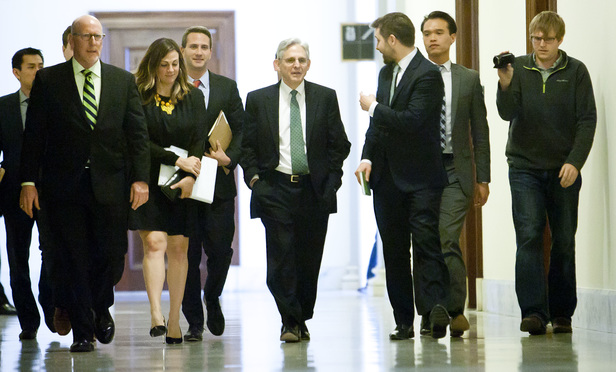The nomination of Garland, the chief judge of the D.C. Circuit, marked the official start of a confirmation process that Senate Majority Leader Mitch McConnell, R-Kentucky, has vowed to avoid since Justice Antonin Scalia’s death on Feb. 13 created a vacancy on the high court.
Democrats wasted little time taking advantage of the new development in what has been a largely abstract debate between the parties. The looming issue: What exactly is the nature of the Senate’s constitutional duty to provide advice and consent over judicial nominations?
This content has been archived. It is available through our partners, LexisNexis® and Bloomberg Law.
To view this content, please continue to their sites.
Not a Lexis Subscriber?
Subscribe Now
Not a Bloomberg Law Subscriber?
Subscribe Now
LexisNexis® and Bloomberg Law are third party online distributors of the broad collection of current and archived versions of ALM's legal news publications. LexisNexis® and Bloomberg Law customers are able to access and use ALM's content, including content from the National Law Journal, The American Lawyer, Legaltech News, The New York Law Journal, and Corporate Counsel, as well as other sources of legal information.
For questions call 1-877-256-2472 or contact us at [email protected]






